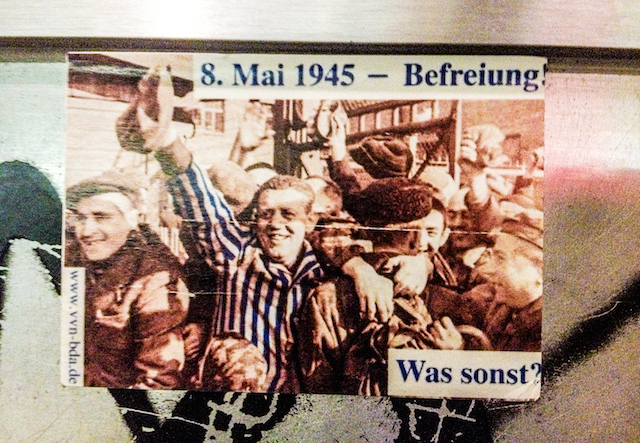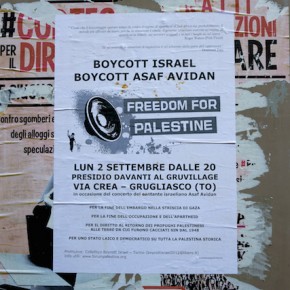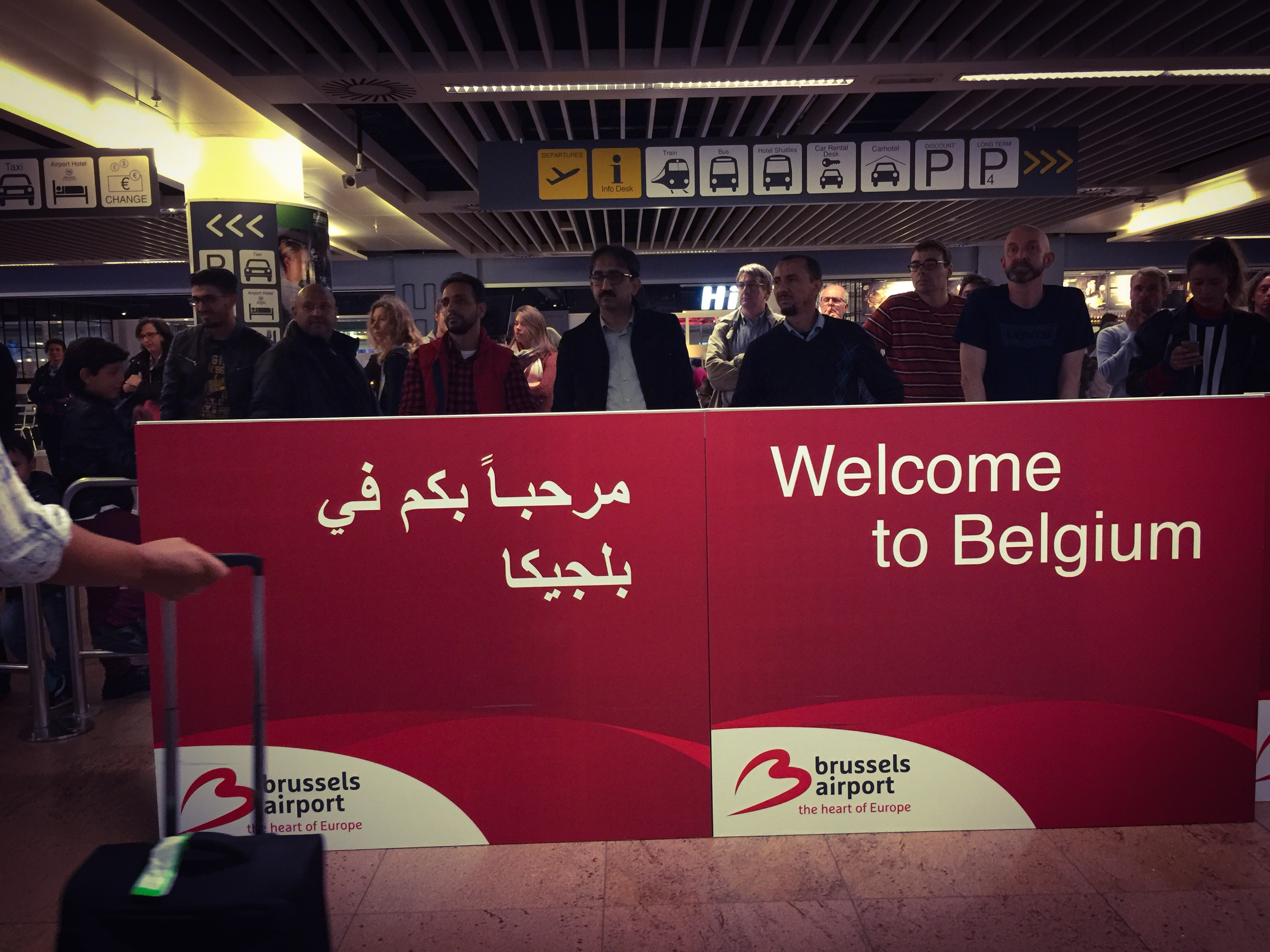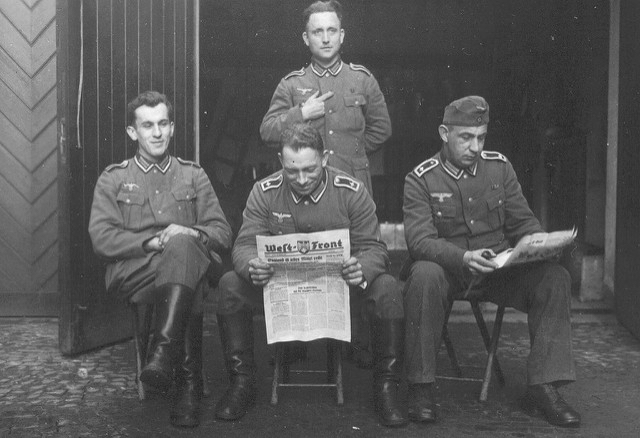We were terribly thirsty. Pots with some beverage were just delivered. The same people, who had been killing us, were distributing round mugs of that beverage along our ranks, while asking: “Was bist du von zivil?”We got what desired, that is (a) beverage, and replied some trade, a worker or a craftsmen. And those pseudo-people, while beating and kicking us, shouted:… “Hier ist Auschwitz – mein lieber Mann!”
We asked each other what that meant. Some knew that here was Oswiecim. But for us it was only the name of a Polish small town. The monstrous ‘camp’ had not have enough time to reach Warsaw, and it was also not known in the world. It was somewhat later that this word made the blood of people at freedom to run cold, (and) kept prisoners of Pawiak, Montelupi, Wisnicz, Lublin awake in the night. One of my colleagues explained to us that we were inside the barracks of the 5th Squadron of Horse Artillery – just near the town of Oswiecim.
We were informed that we were a “zugang” of Polish gangsters, who assailed the quiet German population and who would face due penalty for that. Everything that arrived to the camp, each new transport, was called a zugang.
In the meantime, attendance was being checked. Our names, given by us in Warsaw, were being shouted out, and must be answered quickly and loudly “Hier!” It was accompanied by many reasons for vexation, and beatings. After a check-up, we were sent to the grandiloquently called “bath”. In such a way, transports of people rounded up in the streets of Warsaw, supposedly for work in Germany, were received. Every transport was was received in this manner, in the first months after the establishment of the Oswiecim camp (14 June 1940).
Out of the darkness somewhere (from above the kitchen) our butcher, Seidler, spoke: “Let none of you think that he will ever go out of here alive … your ration is calculated in such a way that you will live for 6 weeks. Whoever will live longer… it means he steals – he will be placed in the Special Commando – where you will live short!” This was translated into Polish by Wtedystaw Baworowski – a camp interpreter. The goal was to cause as quick a mental breakdown as possible.

We put all the bread we had into wheelbarrows and a “rollwaga” (roller wagon) carried into the square. Nobody regretted it at that time – nobody was thinking about eating. How often, later, upon a mere recollection of that, did our mouths water, and our anger grew. Several wheelbarrows, plus a rollwaga full of bread! What a pity, that it was impossible to eat our fill, for the future.

Together with a hundred other people, I at last reached the bathroom (“Baderaum”, block 19). Here we gave everything away, into bags, to which respective numbers were tied. Here our head and body hair were (removed), and we were sprinkled with water. Here I lost two teeth, because I was bearing a record tag with my number in my hand, instead of in my teeth, as was required on that particular day by the bathroom chief (the “Bademeister”). I received a blow to my jaws with a heavy rod. I spat out my two teeth. Bleeding began…
Since that moment, we became mere numbers. The official name read as following: “Schutzhaftling kr…xy…” I wore the number 4859. Its two thirteens confirmed my colleagues’ conviction that I would die.
We were given white-blue striped dresses, denim ones, the same as those which had shocked us (upon our arrival). It was the evening (of 22 September 1940). Many things became clear now. The pseudo-people wore yellow bands with the black inscription “KAPO” on their left arm, while instead of the coloured medal ribbons, as it had seemed to me in the night, they had on their chests, on the left side, a coloured triangle, a “winkel” , and below it, as if in the end of a ribbon, a small black number placed on a small white patch.
The winkels were in five colours. Political offenders wore a red one, criminals – green ones, those despising work in the Third Reich – black ones, Bible students – violet ones, homosexuals – pink ones. Poles rounded up in the street in Warsaw for work in Germany, were assigned, by all accounts, red winkels as political offenders. I must admit, that of all the remaining colours – this one suited me best.
Dressed in striped denims, without caps and socks (I was given socks on the 8th, (and a) cap on the 15th of December), in wooden shoes falling off our feet, we were led out into a square called the roll-call square, and were divided in two halves. Some went into block 10, others (we) to block 17, the upper story. Prisoners (“Haftlinge”) were accommodated both in the ground and in the upper stories of individual blocks. They had a separate management and administrative staff, as to create an autonomous “block”. For a distinction – all blocks in upper storey had letter “a” added to their numbers.
Thus, we were delivered to block 17a, in the hands of our blockman Alois, later called the “Bloody Alois”. He was a German, a Communist with red winkel – a degenerate, imprisoned in camps for about six years; he used to beat, torture, torment, and kill several persons a day. He took pleasure in order and in military discipline. He used to dress our ranks by beating us with a rod.
“Our block”, arranged in the square in 10 rows, dressed by Alois who was running along the rows with his great rod, could be an example of dressing for the future.
Photographs courtesy of Joel Schalit.





